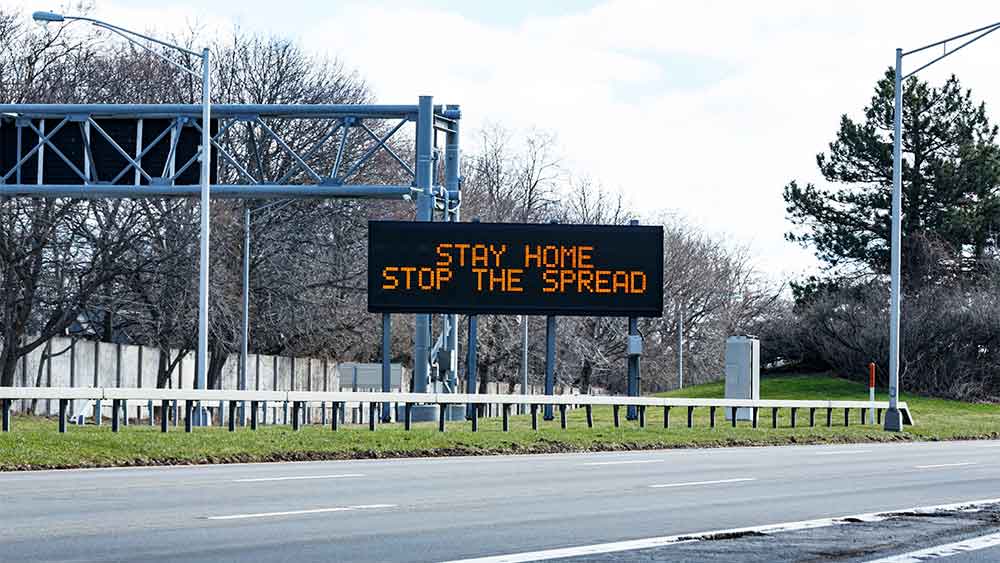During this unprecedented time, it has never been more important for councils to communicate well with their residents.
As guidance issued by government on important issues comes out every day, councils are stepping up to the challenge and ensuring that whether it’s hardship funding for businesses or food packages for the most vulnerable, communities can access the support they need.
Continuing to deliver existing services in new ways, or new services altogether, presents local authorities with complex communications challenges.
Councils have had to perform a range of vital and different roles, including raising awareness of public health advice, signposting residents to available support, managing changes to vital frontline local services – such as refuse collections and keeping parks open – and much more.
As the exchange of information continues at speed, councils are in constant dialogue with their communities to ensure that residents do not miss information that may be important to them. It’s good to see that councils across the country are getting on with the job and engaging with residents in new, accessible and creative ways.
As councillors, you also have an integral role to play. Trusted voices in your local community, you are on the metaphorical frontline. Residents want to hear from familiar faces in their local areas, and many of you are already updating residents remotely through Facebook or other means.
Take Bournemouth, Christchurch and Poole (BCP) Council as an example. Council Leader Cllr Vikki Slade showed real leadership by holding the council’s first ever Facebook live question and answer session. More than 14,000 people tuned in to the broadcast to put more than 100 questions to her directly.
But not all of us have access to the internet, right? That is why BCP Council has advertised its dedicated helpline across local media, put more than 13,500 postcards through the doors of those who do not have internet access, and its councillors have used their local knowledge to strategically place posters in shops and notice boards across their wards.
The council is also contacting the most clinically vulnerable who are unable to leave their homes.
Councils are also providing new services at scale and in ways they have never had to before. As is always the case with new services, to get people signed-up to them, they need to know about them.
City of Lincoln Council, for example, is supporting its most vulnerable residents by mobilising staff to support those who are at risk of becoming isolated through a new telephone befriending scheme.
The council identified early on the need for a service to help protect the wellbeing of the elderly and residents who live alone, on top of the emergency supplies many of them will have already received.
More than 1,000 residents have registered their interest in the befriending scheme, and have been matched to members of staff. So far, a third of those people who signed up have used the service.
Like BCP and Lincolnshire, getting our communications right has a real impact on our daily lives. Being crystal clear that people should leave their homes only for essential trips to get food, medicine, exercise once a day, or support others, really will save lives. With the right communication, we can continue to support our communities.
COVID-19 communications
- Surrey County Council has produced a ‘School Superheroes’ pack to encourage students to keep up with their school work. As a resource that parents can use at home with their children, the pack includes a colouring book and sticker collection, and encourages children to share their work on social media using the hashtag #Surreyschoolsuperheroes.
- Cambridgeshire County Council and Peterborough City Council are working with local leaders who are native speakers in their community languages to film public health advice. The accessible advice is spoken in 31 languages, including Urdu, Bengali, Portuguese and Swahili, and will help harder-to-reach groups access the information they need. View them on Youtube at www.cambridgeshire.gov.uk/residents/coronavirus/coronavirus-campaign-for-communities.
- Alongside the Heart of the South West Local Enterprise Partnership, Devon County Council is supporting people out of work by holding a virtual careers fair. The fair includes information on companies who are recruiting, support for individuals and businesses, and young people and their families.
- Councillors at Bath and North East Somerset Council are getting hands on and delivering emergency supplies. The council is documenting the work of its Compassionate Communities Hub on Facebook. Visit www.facebook.com/bathnes/ for more information.

Ask a librarian
Librarians at the Royal Borough of Kingston upon Thames have set up a livestream on their Library and Heritage Service Facebook page, with story time sessions for children, book reviews and tutorials to help residents who might be self-isolating.
In just one week, their livestreams have reached almost 10,000 people. Like Staffordshire County Council, they are running a series of online events thoughout the week and have made the schedule available in advance.
It is no surprise that there has been a boom in new digital library users since the lockdown was introduced in March – with Hampshire County Council seeing a 770 per cent increase in new users, and Cornwall Council recording a 630 per cent rise.
Libraries remain an incredibly valued service and continue to play an important role in supporting learning across all ages.
Why not get the children to read a story with a librarian after their exercise class with Joe Wicks?

Spreading the word with local celebs
Bournemouth, Christchurch and Poole Council has been working hard to encourage residents to follow the Government’s guidance and stay at home.
It has teamed up with celebrities with connections to the local area, such as Harry Redknapp, the former Manager of Bournemouth Football Club and King of the Jungle, to continue encouraging people to stay at home.
Councils across the country have their own local celebs – refuse workers, care workers, teachers – and have been singing their praises.
Doncaster Council told the old tale of a NASA cleaner’s encounter with former US President John F Kennedy to celebrate its own unsung heroes and point out how local government staff are playing a vital role in managing and responding to the current pandemic. When visiting NASA headquarters, President Kennedy asked the cleaner, who was mopping the floor, what he did at NASA. The cleaner responded: “I’m helping put a man on the moon.”
Council staff have an important role to play in supporting their communities, and it is good to see them get the recognition they deserve, not only from councils but nationwide.
Working with celebrities and singing the praises of our unsung heroes are just two of the countless ways councils are continuing to communicate with their residents.